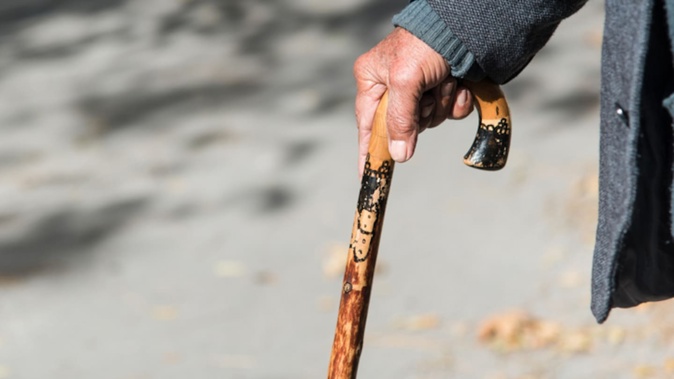

A whānau is deadlocked over who should have guardianship of their much-loved kaumātua, who has dementia.
The man’s daughter, who has been overseeing his care for the past few years, wants him to stay in Auckland, while his son and grandson want him to return to Te Tai Tokerau where he’s from.
Now, the case has ended up in court where a judge has been asked to decide who is best placed to be the man’s guardian and where the 85-year-old should live.
Family Court judge Kevin Muir said there was no question the man’s children and grandchildren have his best interests at heart.
But the family is divided and for the whānau’s long-term wairua to thrive they “may need to find a way to heal the mamae many of them now feel”.
According to a recently released decision, the once “great businessman and amazing cook” now lives in a hospital wing at a South Auckland retirement home. He’s incapable of making decisions about his personal welfare and care.
The man’s eldest daughter was appointed as an interim welfare guardian in 2022. At a hearing in June, she sought to have the order made permanent.
The man’s son opposed the order and his own son applied to replace his aunty as his koro’s welfare guardian.
The elderly man’s son argued his sister’s decision to move him to Auckland ignored the wishes their father had conferred in an ōhākī (last wishes).
He was unable to give an exact time and place when this was made but spoke in general terms about his father having expressed a wish to be “home” in Te Tai Tokerau to a number of people, on a number of occasions.
In an affidavit prepared for the court, the son said: “My father directly conferred full and final authority upon me under tikanga and sacred law prior to any cognitive decline.”
He said his father expressly affirmed he held “tino rangatiratanga over his care decisions and end of life process”.
“[The son] considers the ōhākī is valid and binding because it was expressed before his father’s cognitive decline,” the judge said in his decision.
The daughter said their father was always talking about going back to live on the whenua, it was “peppered through his conversation”.
She viewed and continued to view the father’s ōhākī as being something for the future, “it was his dying wish. He wasn’t dying”.
The decision said the son and his whānau were distressed when their father was moved to Auckland, and there was a confrontation when they arrived at the facility.
As a result, temporary protection orders were issued to protect the father and his daughter against his son and daughter-in-law. Another sister also obtained temporary protection orders.
These remain in place, with the judge noting their existence has been seismic for the whānau.
“There is a palpable sense of mistrust and some anger between them, which was evident during the hearing.”
At the end of the hearing, the judge encouraged the parties to call a hui, kanohi ki te kanohi (face to face), to try to bridge the differences between them, but said, “I cannot compel them to do that”.
Judge Muir stated he was unable to find on the balance of probabilities that the father expressed an ōhākī for his son to make decisions on his behalf or require him to be in a care facility in Te Tai Tokerau.
The judge said this was because he had no reliable evidence that the concept of ōhākī could be extended or applied beyond the concept of a dying wish, and the man was very much alive.
He also referred to a clinical assessment from 2018, which indicated the man preferred to place his trust in his daughter to make decisions about his personal care.
‘I chose the option that is hopeful’
The judge noted the daughter and the man’s grandson were capable of being welfare guardians.
In the daughter’s case, she had shown herself highly capable of carrying out the duties in a satisfactory manner.
But the judge said there was a real prospect that his grandson would be able to unite the four pillars of the whānau – the kaumātua’s four children and their children.
“Sadly, the family remains fractured. Some of the wounds are deep. Some of them seem to relate to the different relationships that the four children had with their mother,” he said.
Explaining his decision to appoint the man’s grandson as welfare guardian, he said: “I chose the option that is hopeful. I find the father’s wairua is likely to be better sustained if responsibility is passed to his mokopuna.”
But he also imposed a number of conditions, including appointing the grandson as welfare guardian for a period of three years.
He also ordered the man to remain at the Auckland facility and not return to Te Tai Tokerau until a suitable care facility was found, medical professionals supported the move and whānau were consulted.
In his closing remarks, the judge thanked the daughter for her selfless devotion and love she’d shown to her father.
“I hope this whānau might recognise the real need that their father has to see his family healed. I hope that they might recognise that that is in their interests as well.”
Catherine Hutton is an Open Justice reporter, based in Wellington. She has worked as a journalist for 20 years, including at the Waikato Times and RNZ. Most recently she was working as a media adviser at the Ministry of Justice.

Take your Radio, Podcasts and Music with you









